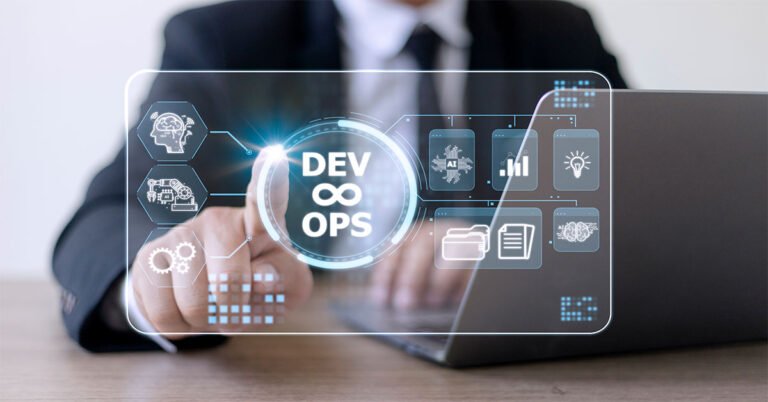As enterprises compete to dominate the digital race, DevOps becomes a hot and widely discussed subject. Tough competition in the market has resulted in a scenario where operational delivery excellence becomes a critical success metric that organizations must achieve to roll out applications faster into the market without quality risks.
Getting a grip on digital business systems requires a holistic and collaborative effort between the operations and development teams. This is exactly where DevOps comes into the picture and transforms the global software delivery paradigm.
On this note, let us explore the top DevOps trends that enterprises must keep an eye out for in 2023.
Trend 1: Rise of DevSecOps
The strides enterprises made in the digital domain over the past decade, and especially during the pandemic years, have resulted in more consumer data being handled through digital platforms than ever before. This directly influences the need to secure every single element of applications, which throws light on the importance of DevSecOps.
DevSecOps can be considered as a development philosophy where security becomes an integral part of DevOps strategies implemented within the organization. In other words security best practices should be implemented right from the start of the development cycle. Following a shift-left strategy for security is of critical importance, as security should be a ground-zero element rather than something you check and validate after an application is engineered and built.
In 2023, we will see an increasing focus from development teams across industries on adopting a secure DevOps practice.
Trend 2: Wider Use of No-Code and Low-Code Platforms
As DevOps becomes a more standardized enterprise technology practice, there is a need to involve more team members in the overall planning and implementation of DevOps. But if they have to execute the technical side of DevOps on their own, it will certainly eat away a lot of time and effort to just get the ball rolling. This is where enterprises will turn their attention to no-code and low-code platforms.
With minimal or no coding effort, more employees can handle both delivery and operations at a broader business level rather than having to dive deep into the technical and programming complexities, thus transitioning into a DevOps culture with best practices followed. An example of a use-case being realized with this philosophy is the ability to manage recruitment challenges easily.. That’s because low-code and no-code platforms will empower employees with negligible or limited prior knowledge to handle much of the DevOps operations. Recruiters can then peacefully hunt for the right specialist talent and add them to the team eventually while business growth remains uninterrupted.
Trend 3: Implementing Chaos Engineering
Performance and availability aren’t the only gold standards that businesses are seeking from their digital systems today. Applications need to be architected to perform at a bare minimum baseline even when working conditions reach an extreme level of uncertainty. This is where the focus on chaos engineering comes into the picture.
Chaos engineering is all about understanding how a system works under extreme, unpredictable operational circumstances. Engineering business systems with knowledge about how they perform under extreme or adverse conditions helps to plan for a more streamlined and well-architected DevOps strategy that can withstand all the chaos.
In 2023, more enterprises are likely to experiment with chaos engineering in their DevOps approach to ensure a better final product that goes live to the market.
Trend 4: Multi-Cloud Deployments
To embrace flexibility in workload distribution and ensure better application performance, more enterprises will be leaning towards leveraging a multi-cloud deployment strategy for their enterprise applications.
Orchestrating a meaningful and risk-free experience for a range of diverse digital systems across your business ecosystem will be a critical objective of DevOps strategies in the coming years, and 2023 will likely witness an accelerated pace for this trend.
Trend 5: AIOps Will Become Mainstream
Estimated to be worth over $644.96 billion in market size by 2030, AIOps will be a key DevOps trend that will see more action in 2023. Applying the principles of artificial intelligence and machine learning in IT operations will ensure that more granular levels of perfection and clarity can be obtained in the digital landscape of businesses.
With AI initiatives making use of data harvested from across all corners of the business and from within all applications, it becomes easier to identify issues faster and enable better and more sustainable growth of digital operations.
The Bottom Line
Enabling better operational efficiency and minimal IT overhead will be key focus areas for businesses in the coming years. As such, streamlining their DevOps strategies to fit modern application behavioral traits will be of prime importance.
We have listed out the top trends that are likely to dominate the DevOps market in 2023. At the end of the day, it is up to leaders to decide how important DevOps and its several facets are to the success of their businesses’ digital infrastructure. Only then would they be able to take DevOps to the next level by accommodating the trends we have covered.
Having a concrete roadmap in your DevOps strategy is essential for success, and this is why partnering with enreap for DevOps solutions makes all the sense. Get in touch with us to learn more & create a winning DevOps experience for your digital systems.




